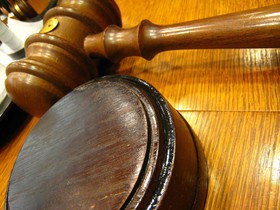Caesars believes that publicly listing its customers will only lead to expensive and burdensome litigation for damaging someone’s reputation or from players who think that they lost money to an alleged cheater and want compensation.
Lawmakers in Nevada backed away from a proposal that would have forced online poker operators in the state to publicly divulge the status and names associated with any accounts banned for cheating — in essence, to create a “black book” of banned online poker players.
The proposal was enshrined in a bill, AB380, that was introduced on March 22 and supported by professional poker player Sara Ralston. She testified before an Assembly Judiciary Committee hearing on April 5 that the bill “would help to deter cheating and other illicit activities by sending a clear message that such behavior will not be tolerated.”
But representatives for Caesars Entertainment — which owns WSOP NV, the only online poker room currently live in the state — also showed up at the hearing to say the company strongly opposes the bill. Lawmakers appeared moved by Caesars’ predictions that it would face multiple lawsuits if the bill were to win passage.
“Should AB380 proceed, we anticipate being drawn into lawsuits by potentially thousands of players, who interacted with a later terminated account and feel retroactively entitled to prize money,” Danielle Barille, Vice President of Online Poker for Caesars Digital, told the panel. “We expect lawsuits from terminated accounts trying to clear their name, putting our confidential security controls on public record.
“Publishing a list of previously banned players does nothing to generate transparency for today’s active customers. Everyone playing on WSOP.com is in good standing.”
While Ralston proposed an amendment to remove references to cheating and clarify that AB380 is not intended to interfere with the Nevada Gaming Control Board’s (NGCB) Excluded Persons List, Caesars said it still opposed the legislation.
“[Ralston] is looking for transparency, and on the surface, that’s a laudable goal, but Caesars is concerned that the bill as proposed and the proposed amendment may provide actually less transparency than what is there at a very significant cost to Caesars and its customers,” Michael Alonso, a lobbyist for Caesars, said at the hearing.
“Caesars believes that publicly listing its customers will only lead to expensive and burdensome litigation for damaging someone’s reputation or from players who think that they lost money to an alleged cheater and want compensation.”
AB380 called for the Nevada Gaming Commission (NGC) to create a list of people who have been suspended or banned from an interactive gaming site for cheating, but the list also would have included people who were banned for violating an online poker room’s terms and conditions. The bill would have also required operators to provide the NGCB with the full name and date of birth of anyone accused of cheating.
The bill also included a surprise provision: It would have required operators not licensed in the state but who are licensed in other states to also submit the names and birth dates of accused cheaters to the NGCB. Specifically, the bill would have applied to operators active in Delaware, Michigan, and New Jersey — the three other states that are signatories of the Multi-State Internet Gaming Agreement (MSIGA), a multi-state gaming compact for online poker and some casino gaming.
That means BetMGM and PokerStars, neither of which have an online casino or offer online poker in Nevada, would have been required to transmit data to the NGCB if AB380 had passed.
Attorneys who specialize in US gaming law blasted the proposal as “a terrible idea” in an exclusive interview with Poker Industry PRO earlier this month. “Nevada has no jurisdiction over [operators outside the state],” Saiber LLC’s Jeremy Kleiman said. “I would hope the legislature does not pass the bill as written.”
Anthony Cabot — Distinguished Fellow in Gaming Law at the Boyd School of Law, University of Nevada-Las Vegas (UNLV) — said he doubted the bill would win passage. “If the casino were required to categorize the reason for the ban, it would create ambiguity between suspicious but potentially innocent play and actual proof of cheating,” he said.
“Moreover, if a player’s ban for suspicion of cheating was made public, it alone brings shame to the player even when the player can prove that the allegation is specious and no cheating occurred. A player later proving their innocence would still have the stigma of having made the list of shame.”
The earliest the “black book” proposal could be resurrected is February 3, 2025 — the first day of the next legislative session in Nevada. The Nevada Legislature meets biennially (every other year) for a 120-day session.
AB380 failed this time around because it did not win passage from the Assembly Judiciary Committee by an April 14 deadline to do so, as per legislative rules.




